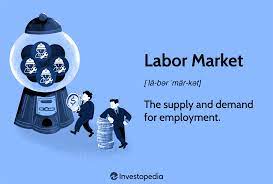
How do supply and demand in the labor market affect job recruitment and talent mobility?
How do supply and demand in the labor market affect job recruitment and talent mobility?
The relationship between supply and demand is one of the most important economic phenomena in the labor market , which has a profound impact on job recruitment and talent flow . Changes in supply and demand will directly affect the company ‘s recruitment strategy and talent flow decisions .
First, changes in supply and demand will affect job recruitment. When the labor market is oversupplied , that is, the supply of labor exceeds demand , and companies will have more options to select suitable talents from a large number of job applicants . In this case, companies may lower salary levels and increase job requirements to attract high-job applicants. In addition, oversupply may also lead to more rigorous and complex recruitment processes to ensure that the final hires are qualified for the job.
On the contrary, when the labor market is undersupplied, that is, labor demand exceeds supply, companies will face talent shortages . In this case, companies may adopt more proactive recruitment strategies, such as increasing salaries, improving benefits , increasing publicity , etc., to attract more job seekers. Companies may also compensate for talent shortages by training and developing existing employees to improve their skills and capabilities .
Secondly, changes in supply and demand will also affect talent flow. When the labor market is oversupplied, meaning there are relatively few job opportunities, job seekers may choose to stay in their current jobs to avoid the risk of unemployment . In this case, the flow of talent may slow down, making it more difficult for companies to attract external talent. Therefore, companies need to pay more attention to employee retention and development and provide a good working environment and development opportunities to retain talents.
On the contrary, when the labor market is undersupplied, that is, when job opportunities are relatively abundant, job seekers may actively look for better career opportunities. In this case, the speed of talent flow may accelerate, and enterprises may need to pay more attention to recruitment and selection to attract and retain excellent talents.
In order to cope with changes in supply and demand , companies can adopt a series of strategies. First, companies should establish stable recruitment channels , including online recruitment platforms, campus recruitment , talent agencies , etc. Secondly, companies should optimize the recruitment process , improve efficiency and reduce recruitment costs . In addition, enterprises should also focus on employee training and development to improve employees’ skills and abilities to cope with changes in the labor market.
In short, the supply and demand relationship in the labor market has an important impact on job recruitment and talent flow. Understanding changes in supply and demand is crucial for companies to develop appropriate recruitment strategies and talent mobility decisions to address labor market challenges.
How to build a good employer brand in the labor market to attract more outstanding talents?
Building a good employer brand in the labor market is crucial to attracting good talent . Talented people often have multiple choices, and they hope to find an employer with an attractive working environment and development opportunities. Here are some ways to build a good employer brand:
1. Define and communicate the company ’s core values and culture : Employer branding should be consistent with the company’s core values and culture. This is one of the key factors in attracting talent. By clarifying and communicating your company’s core values and culture, you can attract talent that aligns with your company’s values .
2. Provide attractive benefits and benefit plans : Benefits and benefit plans are one of the important factors in attracting talents. Companies can offer competitive wage and compensation plans , flexible hours , health insurance , retirement plans , family support and other benefits . In addition, providing career development opportunities and training programs are also important means to attract outstanding talents.
3. Establish an employee participation and communication mechanism : Establishing an employee participation and communication mechanism can increase employees’ sense of belonging and loyalty to the company . Companies can regularly organize employee activities , employee training , and internal communication meetings so that employees can communicate and interact with management and colleagues .
4. Establish a positive working atmosphere and team culture : Companies should strive to establish a positive working atmosphere and team culture. This includes encouraging employees to cooperate with each other, promoting good relationships among employees, and providing an equal and respectful work environment. A good working atmosphere and team culture can attract good talents and improve employee job satisfaction and performance .
5. Establish an employer brand publicity and promotion plan: Companies should actively promote and promote their employer brand. This can be achieved through various channels such as social media , recruitment websites, campus recruitment events, etc. Companies can share information such as employee success stories, company culture and values , benefits and benefits programs to attract top talent .
In short, building a good employer brand requires companies to make efforts in many aspects. This includes clarifying and communicating core values and culture , providing attractive benefits and benefit plans, establishing employee engagement and communication mechanisms, establishing a good working atmosphere and team culture, and actively publicizing and promoting the employer brand. Through these methods, companies can attract more talented people and improve employee satisfaction and performance.